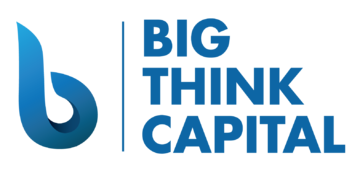
Buying a business entails more than just the purchase price. In this article, we delve deeper into the true cost of business acquisition, going above and beyond business acquisition loans. We explore the complexities of the process, the hidden costs, and the financial implications that often go unnoticed. We also present an insightful examination of business acquisition loans, and how they support the financial needs of entrepreneurs and business owners. Finally, we demonstrate how Big Think Capital can serve as a valuable resource in obtaining any business loan.
Understanding Business Acquisition: A Comprehensive Guide
The surge in business acquisition loans highlights the increased interest in this method of growth among small business owners. But what exactly is a business acquisition? And how does the process work? In this section, we’ll break down these concepts, and offer insights into the world of business acquisition.
Defining Business Acquisition
A business acquisition is when one company acquires the ownership of another. Typically, this happens when a profitable company or a Serial Acquirer purchases a smaller or less profitable company. The financing options for such acquisitions can range from in-house profits to SBA business acquisition loans, or other business loans provided by traditional banks and online lenders. These loans are specifically designed for acquisition purposes and provide a good option for businesses seeking expansion.
It’s crucial before acquiring a business to perform a thorough Business Valuation. This evaluation will assist the business owner in determining the viability of the acquisition. Understanding the financial statement of an existing business can be a complex but necessary part of the acquisition process.
Breaking Down The Business Acquisition Process
The first step in a business acquisition is initiating discussions between the buyer and the seller. Next comes due diligence, where financial documents, market standings, and operational methods are examined closely. This can be a long and considerable process, based on the size and complexity of the business being acquired.
The buyer should ensure the credit scores of the businesses involved, assess the potential of increased cash flow, and evaluate the turnaround time for the profitability of the acquisition. Remember, your Credit Score can affect your chances of getting approved for SBA Loans and other business loans.
Once everything checks out, the final step is closing the deal. This involves payment and transfer of the business ownership. The payment may include working capital, real estate, or the total remaining balance, depending on the agreement.
Need Assistance With Business Acquisition? Find Out How Big Think Can Help
Are you ready to take the next step in your business acquisition journey? Big Think Capital is here to help you secure the financing you need to make your acquisition a reality. Our team of experts specializes in business acquisition loans and can guide you through the process. Don’t miss out on the opportunity to expand your business.
Costs Involved in Business Acquisition: Looking Beyond Business Loans
A business acquisition isn’t as simple as just purchasing another company. Beyond the initial cost of acquisition, there are administrative costs, human capital considerations, and the costs associated with integrating technology. Understanding these additional expenses can help ensure you make a more informed decision about whether a business acquisition is truly within your fiscal means.
Cost of Acquisition
Getting a business acquisition loan can cover the initial costing of the existing business. However, acquisition costs aren’t just about purchasing assets and absorbing liabilities. They include a range of expenses that include the investment banking fees, legal consultation, and regulatory approval—all of these are essential aspects of an acquisition process that business owners should consider.
Administrative Costs: Legal and Consulting Fees
Acquiring a business is, in essence, a legal process. This means legal advice and consultation are mandatory. Hiring an investment advisor or an insurance agent can also help with determining the financial dimensions of an acquisition. All these services come with their own costs, which can significantly increase the acquisition costs.
You should also put aside a budget for third-party services like accounting, tax advice, and auditing. The SBA loan process or the application process for other business acquisition loans may also require certain additional administrative expenses.
Costs Involved in Business Acquisition: Looking Beyond Business Loans
A large part of the acquisition cost is integrating the acquired business into your current operations. The integration process can impact both the human and technology aspects of business operations. Employee training and hiring, the unification of software systems, applications, and databases are all factors requiring careful consideration when estimating costs.
While business owners might see being a serial acquirer as an effective way to rapidly grow their business, the ongoing costs of integrating acquired companies can quickly mount up. Full understanding and careful planning can help mitigate these expenses and make a business acquisition a solid investment choice.
Other Financial Considerations of Business Acquisition
When a business owner is considering an acquisition, it is imperative to consider the full weight of the financial implications beyond just the business acquisition loan. This typically involves analysis of several financial aspects, including existing liabilities, cash flow implications, and long-term operational costs.
Evaluating the Existing Financial Liabilities
One critical aspect to analyze is the existing business liabilities. Having a good understanding of an existing business’s financial status can provide insights into the overall value of the acquisition and the potential return on investment. It’s crucial to review financial documents, balance sheets, and any outstanding debts or obligations such as term loans.
An incomplete understanding may affect post-acquisition operations, leading to deteriorating cash flows, higher interest rates, and overall business instability. Thus, it’s advisable to work with investment advisors or insurance agents to gain an accurate understanding. They can also help you ascertain the minimum annual revenue requirement, ensuring that the acquisition can handle existing debt.
Understanding Impact on Cash Flow and Revenue
A business acquisition impacts both revenue and cash flow. Previous operating income and cash flow patterns may significantly change following an acquisition, particularly if the existing business has not been performing well.
For instance, if the current business has been sustaining through small business loans, it may take some time before the new owner starts to see positive cash flow. Therefore, readiness to infuse working capital funding or startup loans like those offered by the SBA become a crucial consideration for any intending business acquirer.
Simplify Your Next Acquisition With Big Think Capital
Your business acquisition journey begins here. Big Think Capital has a track record of helping entrepreneurs like you achieve their acquisition goals. Whether you’re looking to purchase a small business or expand your operations, we have the expertise and financing solutions you need. Contact us now, and let’s discuss your specific needs and how we can assist you in making your business acquisition a success.








